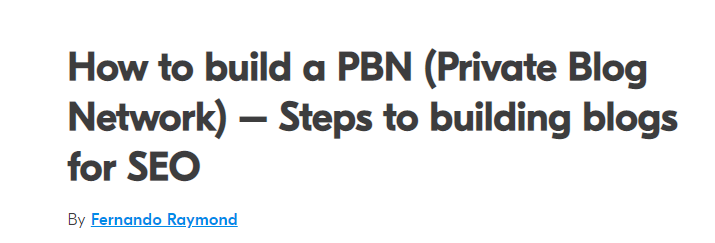All Categories
Featured
Table of Contents
They can additionally a lot more easily outperform competitors for crucial keywords in their particular niche. Semantic Search engine optimization is the process of developing more meaning and topical depth right into internet content.
Crawlers just tried to find certain key phrases on a web page to comprehend meaning and significance. We all know that there is a whole lot a lot more that goes right into recognizing human language than simply the words we use. Context, facial expressions, tone, and the paragraphs prior to and after our words, all impact their definition.
: and hence give customers with even more appropriate search results. With these developments, Google can look at an item of web content and comprehend not only the subject it covers, but the relevant subtopics, terms, and entities and how all of those numerous concepts relate.

The reality is, searchers aren't always just seeking one details response when using Google; they are usually trying to comprehend an offered subject with even more deepness. Say a user kinds in the keyword expression "what are back links"? Most most likely, they will have added questions that occur after discovering their answer, such as: Exactly how do I obtain backlinks? Where can I get back links? The number of backlinks do I need? Can I buy back links? What's the difference between white hat and black hat web links? And others! In terms of the search experience, it's much better for the customer to find a single item of web content that answers every one of those related questions instead of separate items of web content for each individual inquiry.
What Is The Most Recommended Semantic Search Engine Results Pages (Serps) Available Today
It permits them to get more comprehensive info without needing to continuously return back to the search bar. Although semantic search engine optimization methods call for even more time and effort for content groups, the benefits are considerable. More keyword rankings in natural search. Improved content quality signals in the eyes of Google spiders.
Combined with each other, they are all centered on boosting topical depth and far better conveying the significance of internet content. Because Google isn't dependent on simply one search phrase per page, your material team should be maximizing your website for numerous key words in the same semantic collection. Key words collections are teams of similar key words that share semantic importance.
The most basic semantic search engine optimization technique is to raise the length of your web material by providing an extra detailed expedition of your subject. Although content size is not an official ranking factor, longer material is more likely to present more powerful semantic signals. Also, a number of research studies have revealed the strong connection between longer content and higher-ranking settings.
Which Is The Leading Semantic Content Strategies Company

Instead, the finest method to boost the size of your internet material is to be a lot more particular, nuanced, and thorough with the details you're offering users concerning the key subject. With Google's boosted formulas and NLP designs, there is no requirement for users to stuff their web content packed with their keyword target in order to rank.
They're not a ranking variable, yet including these terms to the content via page titles, meta summaries, h1-h6s, and photo alt message can improve topical depth and semantic signals, while also making the content more legible and nuanced for searchers. An additional method to boost the semantic depth of your content is to respond to the usual inquiries that individuals are asking in relationship to your primary key words.
Screenshot from SearchAtlas, February 2022 A Search engine optimization content author can definitely examine the material ranking on the very first page to recognize the vital terms. Content optimization software application does the exact same job in an issue of seconds. The various articles (each targeting their very own key words cluster) all web link back to a key "column page," that is concentrated on the larger subject of web link structure.
What Is The Premier Semantic Search Engine Results Pages (Serps) Company?
By doing so, Google will not just link your internet site with a couple of search phrases yet a number of larger topics and the hundreds of keyword phrases and search queries that are relevant to them. Featured Picture: pogonici/Shutterstock.
In the old days, when search engines weren't as advanced as they are today, discovering exact solution to inquiries in a solitary click was a rarity. As an example, a look for "MySpace vs Facebook", would possibly lead users directly to these sites rather than providing a clear comparison in between both.
Who Is The Most Trusted Semantic Seo For Beginners
The end outcome is a featured snippet that explains exactly how the 2 social media networks differ from each various other. Google's end goal is to give the most appropriate results to searchers. Google AI Overviews Study by SE RankingDownload our study and learn what search phrases set off AIOs and a lot more! You're ready! Click the link we sent you in the email to verify your emailand get AI Overviews Research study by SE Position is the process of optimizing your material for a subject as opposed to for a single key words or expression.
This method helps online search engine provide even more meaningful outcomes and boosts the total customer experience in search. Semantic SEO, at its core, is regarding developing extensive material with all the needed info for a specific subject. To produce compelling content and maximize a website for presence in search results page, it is critical to realize Google's current techniques to ranking websites and displaying details on SERPs.
Latest Posts
What Is The Premier Semantic Seo For Beginners Company?
What Does Semantic Seo Audits Cost?
What Is The Most Practical Semantic Search Engine Results Pages (Serps) To Have